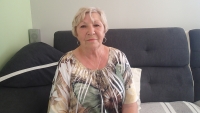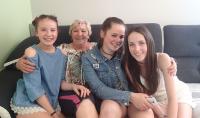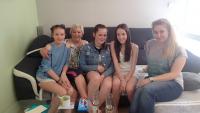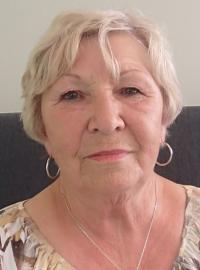SS officers were running away
Download image
Milada Jelínková, née Maršíková, was born on the 28th of September 1937 in České Budějovice. Her father was Czech, her mother was French. During the war the family lived in the village of Zborov, near Nové Hrady. Her father was deployed to Germany and the mother stayed at home with three daughters. At the end of the war the mother hid a German national who escaped from forced deployment in her attic. During the 1945 liberation the Maršík family hid a German family at home and helped them run away to Austria. In 1964 the family managed to travel to France, which was the first time the mother got there since 1937. Milada worked at a butcher’s shop her whole life.



